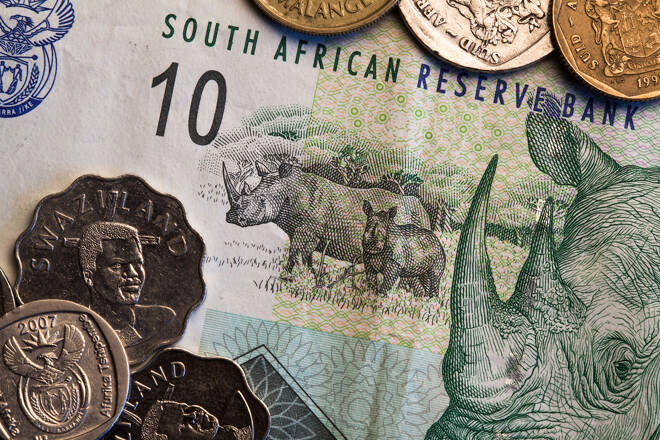Advertisement
Advertisement
EU Financial Support Represents Modest Boost for Africa’s Growth Outlook
By:
The EU’s Global Gateway Investment Package will have a limited impact on Africa’s growth outlook, but the EUR 150bn investment plan could assist African countries in addressing longer-run challenges.
The EU and the African Union (AU) announced investment of at least EUR 150bn at their summit last month, equivalent to around half of a EUR 300bn Global Gateway Investment Package launched in December 2021 by the EU as an alternative to China’s Belt and Road. The EU-AU investment plan follows the EU-Africa partnership announced in June 2020.
The EU investment package represents around 7% of African GDP
The EUR 150bn package represents around 9% of sub-Saharan African GDP and around 7% of the whole continent’s GDP. Details of the investment plan remain limited, but it ought to include contributions from Team Europe, EU budget, EU member states and private investors. According to European sources, the EU would make payments of EUR 20bn a year, of which only 6bn would come from EU financing and the rest from EU states and private investors. For instance, the European Investment Bank has pledged EUR 500m in partnership with the WHO to mobilise EUR 1bn to strengthen public health on the continent.
Financial support provided by the EU through loans, grants and guarantees has long contributed to official development assistance globally. The latest EU financial package aims to support African countries by lowering pressure on budgets and spurring public investment in critical sectors such as environment, digitalisation, employment, health and education.
EU official development assistance makes up lion’s share of global aggregate
Share of total 2020 official development assistance from OECD Development Assistance Committee members
The programme is timely. The Covid-19 crisis has required upfront public spending at expense of critical longer-run investment. African countries’ gross financing needs have risen, while the pandemic has reversed recent progress in the reduction of poverty and inequality.
EU financial support is relatively small compared with Africa’s investment needs
Even so, the EU financial package is relatively modest compared with the African region’s investment needs. According to the African Development Bank, Africa needs more than USD 1trn a year:
- around USD 480bn over the next three years to address socio-economic impacts of the pandemic crisis and support economic recovery;
- around USD 400-800bn per year to eliminate extreme poverty by 2030;
- USD 7-15bn a year to deal with climate change;
- up to USD 100bn per year to fix an outstanding infrastructure financing gap.
The latest EU financial package is unlikely to materially impact growth and fiscal outlooks of African beneficiary countries given immediate challenges they presently face. With the pandemic far from past on the continent, rising interest rates constitute another important risk given rise in public debt over a past decade. Many African governments have stretched balance sheets and little room for fiscal manoeuvre with frameworks for debt restructuring hamstrung due to structural problems.
Political and institutional instability could weaken capacity to address challenges in a timely fashion
Political and institutional instability could also weaken capacity of some countries to address challenges in a timely manner, which may undermine the swift disbursement of EU financing. Competition between international lenders, including with China, may be detrimental to Africa, if the rise in unconditional financial assistance leads national governments to postpone or limit critically needed structural reform. Any material impact of EU financial support on the regional growth outlook is conditional on the gradual implementation of reforms often under a context of terms of financial assistance from international financial institutions.
Reforms are also important for the scaling up of private-sector investment, which could help address Africa’s challenges. The recent rise of commodity prices is a boost for many export-dependent countries but could again manifest complacency in the pursuit of reforms needed for sustainable economic growth.
Europe and Africa have long had deep and close financial relations that could enhance Africa’s long-run growth potential if they were to kick start private investment and foster improved governance, transparency and infrastructure.
Top 10 countries by FDI stock in Africa
USD bn
Thomas Gillet is an Associate Director in Sovereign and Public Sector ratings at Scope Ratings GmbH.
About the Author
Thomas Gilletcontributor
Thomas Gillet is a Director in Scope’s Sovereign and Public Sector ratings group, responsible for ratings and research on a number of sovereign borrowers. Before joining Scope, Thomas worked for Global Sovereign Advisory, a financial advisory firm based in Paris dedicated to sovereign and quasi-sovereign entities.
Advertisement
